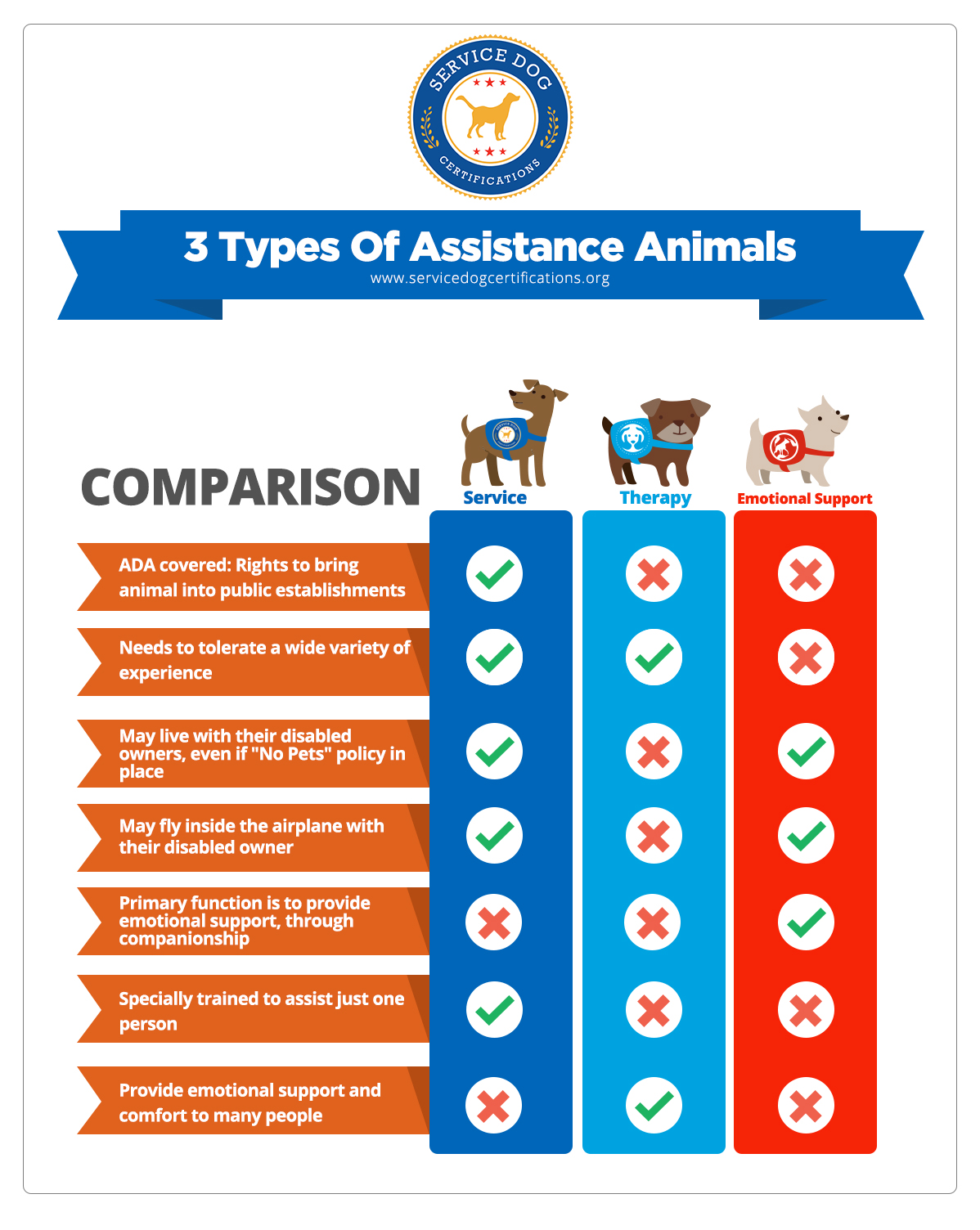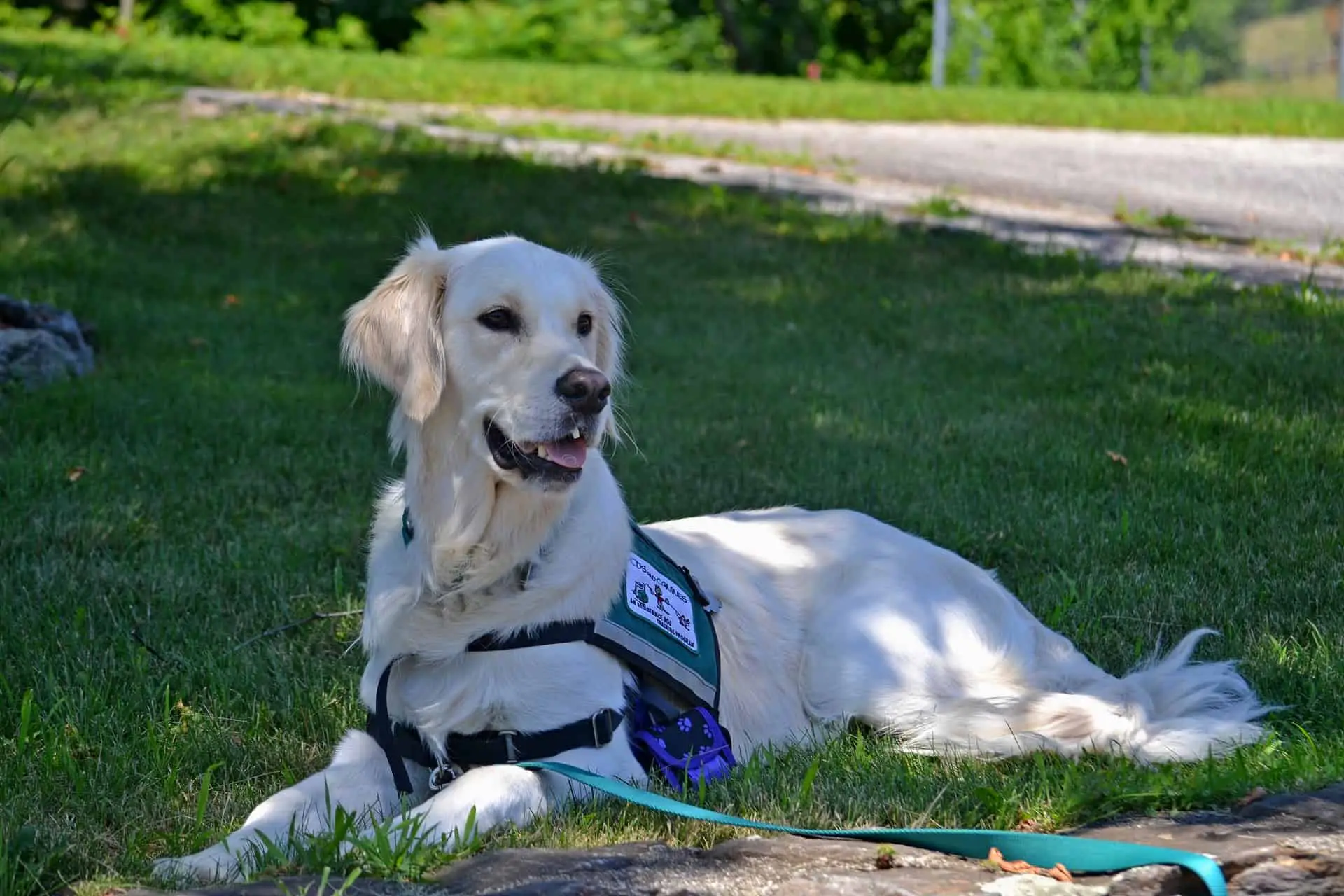Service Animals And Emotional Support Animals In Victim Services

There are differences in the processes required and in the accommodations provided to individuals with identified disabilities supported by Service Animals and Emotional Support Animals.
Service animals and emotional support animals in victim services. A service animal falls under the Americans with Disabilities Act and is usually a dog that is trained to do work or perform tasks for the benefit of an individual with a physical sensory psychiatric or intellectual disability Emotional support animals are not trained in specific tasks and are not recognized under the ADA. An emotional support animal is not a service animal and not afforded access to all public places. Service Animals in Training.
Entities may not ask for documentation. Service Animals Service animals are trained to provide a specific service or services to an individual with a disability. Some ESAs are.
During this session practical information will be provided to direct service providers and other programs open to the public about service and support animals. Find out the laws in the United States that apply to these. Emotional Support Animals or ESAs are a category of animals that may provide necessary emotional support to an individual with a mental or psychiatric disability that alleviates one or more identified symptoms of an individuals disability but which are not considered Service Animals under the ADAAA.
Policy for Service Animals and Emotional Support Animals. The ADA makes a distinction between psychiatric service animals and emotional support animals. Service Emotional Support and Therapy Animals.
Dogs are great animals who are more than able to help ptsd victims. An ESA is not a pet a Service Animal or a therapy animal. Emotional support animals ESA are not service animals.
Service animals and emotional support animals might have access to buildings and vehicles where animals are normally excluded. Find out the laws in the United States that apply to these animals including the Fair Housing Act and learn about New Mexicos Model Guidelines for Service Animals and Emotional Support Animals in Domestic Violence Programs and Shelters which provide policy suggestions and other tips for working with clients who have emotional support animals and how to respectfully respond when someone tries to bring in a dog or animal. Learn more about the rights and regulations that apply to clients with service animals and emotional support animals in domestic violence programs and shelters.



















